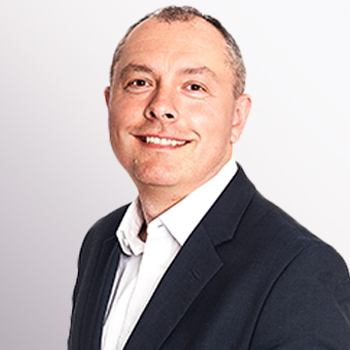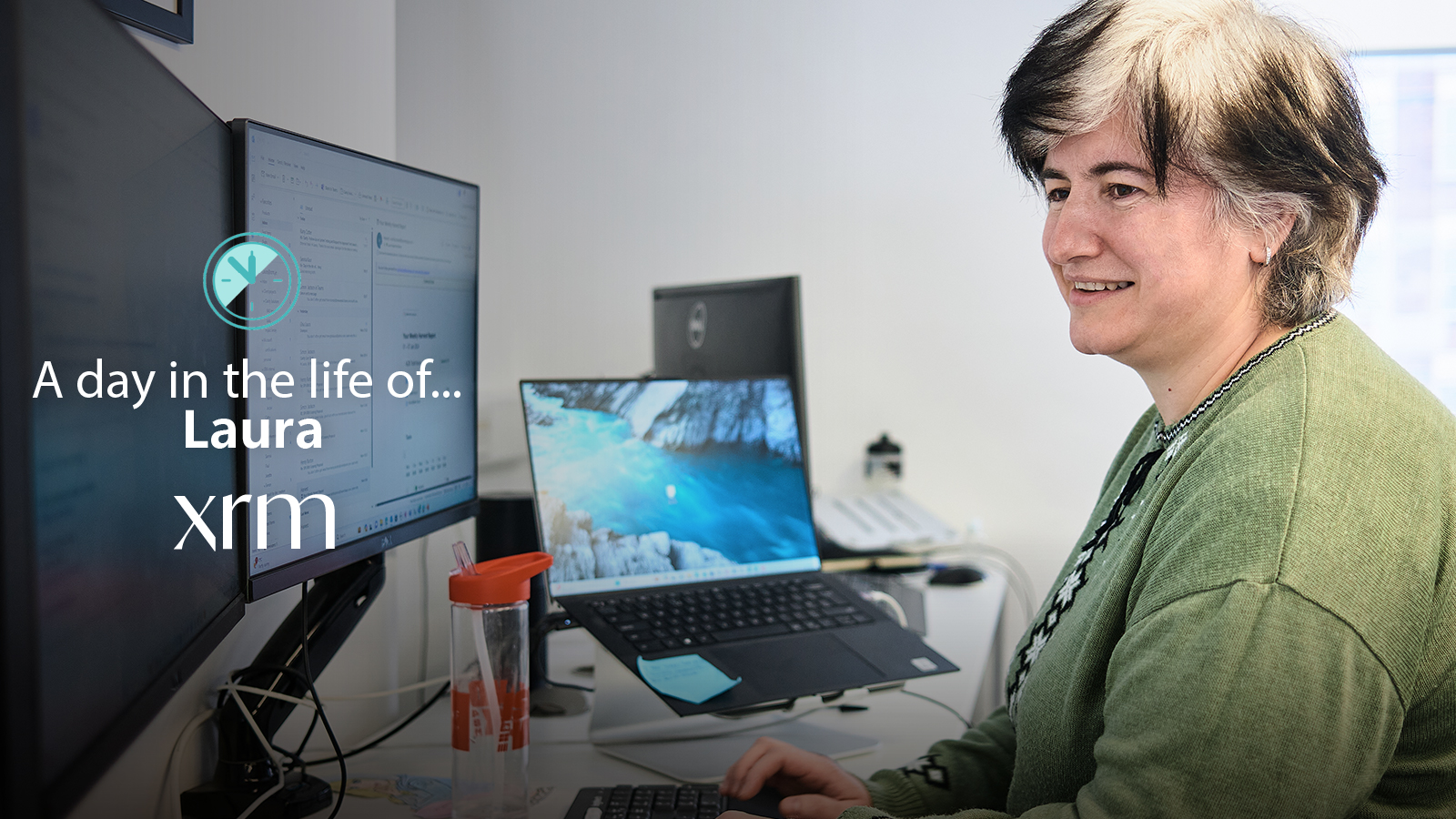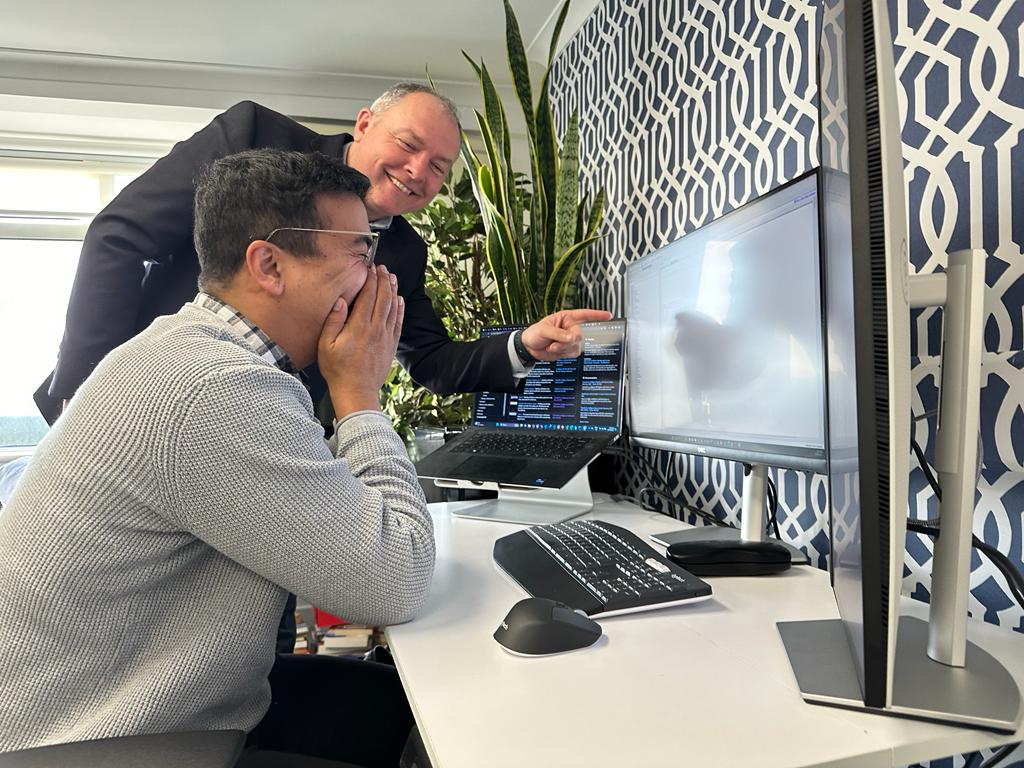In the latest instalment in our day in the life blog series, we catch up with our lead software architect, Wesley Nell, who’s been with us for a year.
Keep reading for behind-the-scenes insight, including the core tasks Wesley always carries out at the start and end of each every day, what he enjoys the most about his work and what he’s currently focused on.
Q. What time do you usually start work?
8.45am.
Q. What’s the first task you tend to carry out every day?
I attend the daily stand-up team meeting, where we discuss what we’ve achieved the previous day, plan for the day ahead and highlight any blockers. These meetings are useful for getting a high-level overview of what everyone’s doing and discussing how we can help each other overcome any issues we may be encountering.
As soon as the meeting’s over, I respond to my emails and either pick up new work or continue where I left off the previous day.
Q. What does a typical day look like for you?
It varies. I could be designing new features or trying to understand a request and how it fits within existing architecture and processes. From there, I then define tasks that make up the solution and estimate how long it’s going to take for the work to be designed, developed, tested and deployed.
Once the design phase has been completed, I then start working my way through each task/sub-task within a story or epic. If I get stuck on anything for longer than an hour, I reach out to a colleague for some knowledge-sharing support. At the same time, I’m also on hand to help our junior and intermediate developers and fix any high priority bugs.
Q. What do you enjoy the most about your job?
I’ve always enjoyed working with the latest technologies. I really enjoy getting to learn new things and further explore them by reading up about them, as well as implementing them.
I also attend in-person Microsoft conferences, which I always look forward to. Last year, we all went to the Scottish Summit, which was totally awesome! The event brought together industry leaders, experts and enthusiasts from around the world to learn about the latest Microsoft technologies, such as Azure, Dynamics 365 and Power Platform. There was a real strong sense of community and plenty of opportunities to network and share experiences.
Q. What do you wish you could change about your work and why?
With consultancy work, it can be difficult to implement changes because a lot of what we do is shaped by our clients’ requirements. However, we can guide and advise them on the options, which is a key part of the projects we deliver. This means we have to be flexible and adapt to different environments, which are constantly changing. I always look at every project as a chance to improve on previous learnings.
Q. What are you currently working on?
I’ve just got back from a four-week holiday in my homeland, South Africa, so am currently catching up on everything.
Before that, I worked on an Automated Secret Rotation for Azure App Registrations. It’s a security best practice for Azure Solutions that utilises Client Secret Keys as a method of authentication. This sensitive information is stored in Azure Key Vault with an expiry date. When the value is close to expiring, it triggers an event in Azure that’s logged in a message queue. It’s then picked up in an Azure Function that updates and generates new Client Secrets that are used by our applications.
The entire process ultimately makes sure our applications remain secure by not having long-life secrets that are at a high risk of being breached.
Q. What’s your proudest achievement so far and why?
When I joined XRM a year ago, I had to swiftly get into the swing of existing projects. I saw The Automated Secret Rotation project through from beginning to end. I’d say it’s my biggest achievement because I got to use some really great pieces of technology within Azure, such as Azure Event Grid & Event Subscriptions, Azure Storage Queues and Azure Service Bus Queue. I also used the Terraform Framework to build infrastructure as code solutions.
Q. What’s the last thing you always do before logging off the day?
I log my time against the correct projects and check any codes that have been developed. This makes sure our central repositories are updated should any of my colleagues have to pick up a project I’ve been working on.
Q. Describe your job in one word
Growth.
Senior.NET developer FAQs:
Q. How do I become a senior.NET developer?
Understanding the basic coding principles, e.g. the SOLID principles, is key. They’re widely used across organisations and recognised as being one the foundations of .NET work.
Object-oriented programming training is essential for understanding the C# Language, which is a fundamental component of .NET. Database structures and the SQL language. Both are recognised as being crucial for building end-to-end applications capable of storing and retrieving data from databases.
Application Lifecycle Management (ALM) also forms a significant part of the development process and is essential for implementing any changes.
Overall, the most effective way of learning programming/development is by doing it. Regularly working on coding helps improve approaches to different scenarios. In the meantime, revisiting old solutions and identifying areas that can be improved, is also incredibly useful.
Solving issues on Open Source Projects/Frameworks within GitHub or completing coding challenges online is also highly recommended.
Q. Do solutions architects need to know coding?
It is valuable to know coding, but it’s not a necessity. Solutions architects are required to understand how to use technology to solve business problems. As a result, their core focus should be on understanding the technology’s capabilities and how it can be used to solve the business problem at hand.
Q. What are the top 3 certifications in Azure?
- AZ-204: Developing Solutions for Microsoft Azure.
- AZ-104: Microsoft Azure Administrator.
- AZ-305: Designing Microsoft Azure Infrastructure Solutions.
We hope you’ve found this blog interesting. For further insight about who we are and our capabilities, take a look at: https://www.xrm.je/why-xrm/

Written By: Simon Jackson
With over two decades of hands-on experience with Microsoft Dynamics and an impressive 25-year track record in coding and business solutions consultancy, Simon brings a unique blend of expertise to his clients. His deep-rooted knowledge in Microsoft Technolgies, coupled with his extensive coding experience, equips him with a competitive edge in delivering effective and efficient solutions. Simon's distinguished career has largely been dedicated to serving clients within the financial sector and the burgeoning fintech industry. His client base is diverse and expansive, ranging from startups to established corporations, all of which have benefited from his invaluable insights and solutions. This demand for his expertise is a testament to his adeptness and reliability in the field. Simon's expertise extends beyond Dynamics solutions. He possesses a profound understanding of databases and software integrations, AI, security architectures, and the deployment of multi-country models. His proficiency in these areas ensures he can navigate complex technical landscapes and deliver tailored solutions that align with clients' strategic goals. His proven ability to integrate complex systems while ensuring robust security models stands as a testament to his adaptability and technical prowess.


